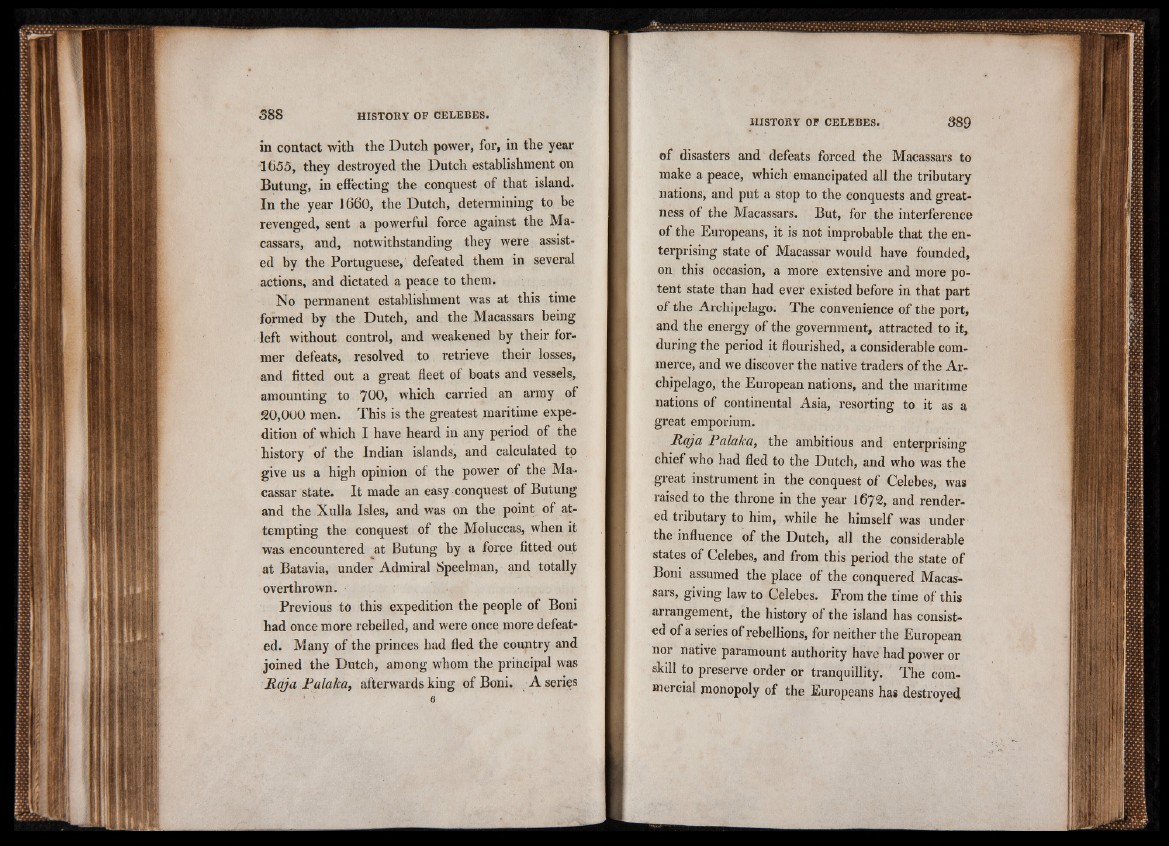
in contact with the Dutch power, for, in the year
1655, they destroyed the Dutch establishment on
Butung, in effecting the conquest of that island.
In the year 1660, the Dutch, determining to be
revenged, sent a powerful force against the Macassars,
and, notwithstanding they were assisted
by the Portuguese, defeated them in several
actions, and dictated a peace to them.
No permanent establishment was at this time
formed by the Dutch, and the Macassars being
left without control, and weakened by their former
defeats, resolved to retrieve their losses,
and fitted out a great fleet of boats and vessels,
amounting to 700, which carried an army of
SO,000 men. This is the greatest maritime expedition
of which I have heard in any period of the
history of the Indian islands, and calculated to
give us a high opinion of the power of the Macassar
state. It made an easy conquest of Butung
and the Xulla Isles, and was on the point of attempting
the conquest of the Moluccas, when it
was encountered at Butung by a force fitted out
at Batavia, under Admiral Speelman, and totally
overthrown.
Previous to this expedition the people of Boni
had once more rebelled, and were once more defeated.
Many of the princes had fled the country and
joined the Dutch, among whom the principal was
Raja Palaka, afterwards king of Boni. A series
of disasters and defeats forced the Macassars to
make a peace, which emancipated all the tributary
nations, and put a stop to the conquests and greatness
of the Macassars. But, for the interference
of the Europeans, it is not improbable that the enterprising
state of Macassar would have founded,
on this occasion, a more extensive and more potent
state than had ever existed before in that part
of the Archipelago. The convenience of the port,
and the energy of the government, attracted to it,
during the period it flourished, a considerable commerce,
and we discover the native traders of the Archipelago,
the European nations, and the maritime
nations of continental Asia, resorting to it as a
great emporium.
Raja. Palaka, the ambitious and enterprising
chief who had fled to the Dutch, and who was the
great instrument in the conquest of Celebes, was
raised to the throne in the year 1672, and rendered
tributary to him, while he himself was under'
the influence of the Dutch, all the considerable
states of Celebes, and from this period the state of
Boni assumed the place of the conquered Macas-
sars, giving law to Celebes. From the time of this
arrangement, the history of the island has consisted
of a series of rebellions, for neither the European
nor native paramount authority have had power or
skill to preserve order or tranquillity. The commercial
monopoly of the Europeans has destroyed